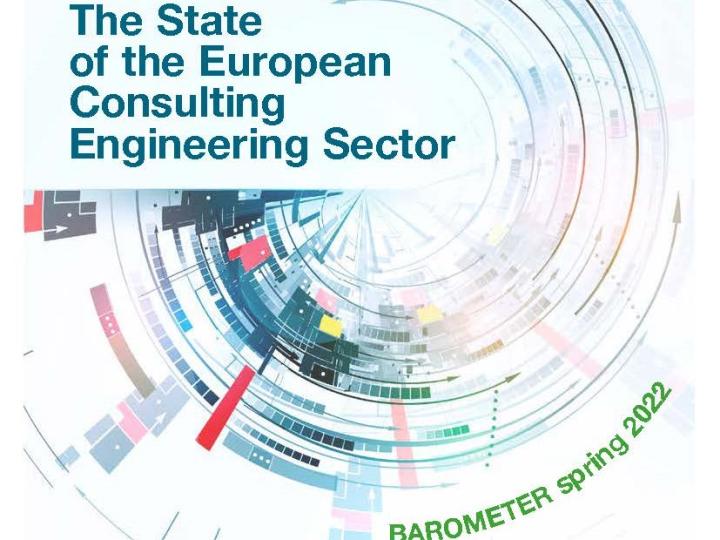
The latest Industry Barometer from the European Federation of Engineering Consultancy Associations (EFCA) shows that disruptions generated by the COVID-19 shock in Europe waned. However, the Russian invasion in Ukraine poses new challenges and uncertainties for the European Consultancy and Engineering companies.
The impact of high numbers of COVID-19 infections in all parts of the world during the early months of 2022 has not hindered the growth of the consultancy and engineering industry across Europe. The currently largest challenge for the consultancy and engineering industry in Europe is the shortage of staff. But the impact from the war in Ukraine, continued COVID-lockdowns in China, rising inflation and interest rates are all factors contributing to heightened uncertainty as to the market developments in the future.
Henrik, Garver, CEO of the Danish Association of Consulting Engineers and Chair of EFCA’s Economic Environment Committee commented the release of the latest EFCA Industry Barometer, which shows biannual trends and expectations amongst European consulting engineers.
“The impact of the pandemic situation on the consultancy and engineering industry in Europe is significantly reduced, compared to the situation 6, 12 and 24 months ago. The signs of improvement, forecasted in the previous two Barometer reports, that is spring and autumn 2021, have materialised, and the market situation is good.” says Mr. Garver.
The underlying indicators provide reasons for caution. Despite an increase of employment by 53.5 index points since autumn 2021, the forecast for autumn 2022 is pessimistic. This correlates with the Forecast made by the European Commission on labour markets. The current situation is strong, but there is great uncertainty for the future.
Mr Garver added “Whilst staff shortage is currently the most salient concern, low fees and digitalisation have gained in importance compared to previous surveys. Profitability for 2020 was at an average of 7.1 percent, compared to 5.4 percent in 2019. For 2021 profitability is expected to increase in eight of 20 participating countries and remain unchanged in the rest, except for one country which expects a decrease.
Whilst measures are still needed to address the consequences of the coronavirus crisis, EFCA is strongly advocating the right regulatory incentives for green investments to thrive, increased funds for the energy transition and accelerated permitting deadlines for renewable energy projects. The engineering consulting industry has a major role in delivering on Europe’s ambitious climate change targets.”